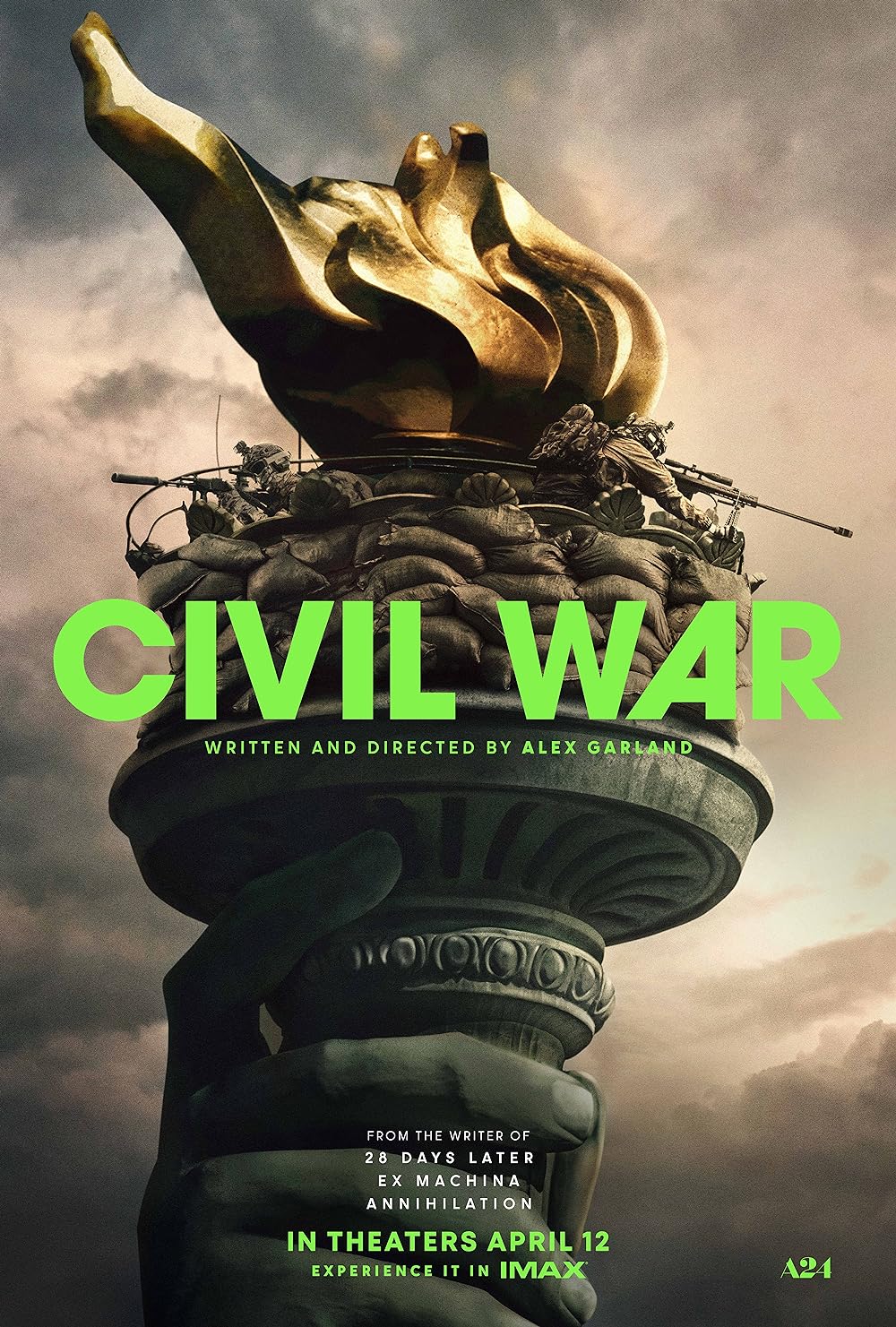‘Civil War’ covers horror at home from journalists’ perspectives
Warning: Spoilers ahead!
Alex Garland continues to be one of the finest current science fiction writers, and he’s proved himself as a great director with films such as “Ex Machina” and “Annihilation.” Garland has returned with a new film taking on America’s polarized political state in the form of a second civil war. But “Civil War” is not a typical war film in the vein of “Apocalypse Now” or “Full Metal Jacket.” Garland uses the setting of a war to focus on an often under-represented side of war: the journalists who cover it.

A24’s Civil War official poster. (PROVIDED)
“Civil War” proves to be an interesting exploration into the life and mind of being a war correspondent. Garland drew from the experiences of his father, the political cartoonist Nicholas Garland, when depicting the journalists of the film. Garland presents his journalists honestly, showcasing why journalism is so important but not glorifying or martyring them in any way. The journalists in “Civil War” are flawed, sometimes self-serving people who have grown addicted to the high of finding ‘the perfect shot’ and will get it no matter what, even if it means possibly getting killed in the crossfire. Themes such as trauma and the dehumanization of war are explored through the film, and we see it through the eyes of journalists rather than soldiers or other combatants in war.
War journalists have recently been in the spotlight: American documentarian Brent Renuard was killed in Ukraine in 2022, and one can admire Garland’s boldness in exploring this often ignored part of warfare. Throughout the film, we see how the characters cope with the constant stress and threats of violence and death. Some resort to thrill seeking, while some shut off their emotions completely.
It’s particularly disturbing in one scene, in which Lee Smith (Kirsten Dunst) tells her protege that she may take a photo of her dying if it happens while they’re out there. There’s a motif of disconnection that runs throughout the movie: we see militia groups commit bone-chilling atrocities, talking casually about killing people as if they’re just talking about the most recent football game. There’s a particularly memorable scene with Jesse Plemons’ unnamed ultranationalist when he asks the protagonists, “What kind of Americans are you?” This proves a chilling reminder of how war can degrade humanity to such an extent that killing becomes just another part of life.
With that comes some shortcomings in “Civil War.” There were parts where Garland could have expanded on a message about why we should retain our humanity and decency during a time of conflict rather than become a shell. The film brings up this theme in several scenes, but it doesn’t really go anywhere with it. That said, Garland is explicitly trying to show how war’s insanity can take such a toll that eventually you grow disconnected from the carnage.
“Civil War” is the “Apocalypse Now” of war journalism movies, as it depicts characters who are one more trauma away from snapping completely, and how war just becomes another part of the job, and of life. The journalists in this movie are on the edge, one step away from falling into the abyss and breaking completely. While not as epic as Coppola’s classic, “Civil War” is just as haunting.

